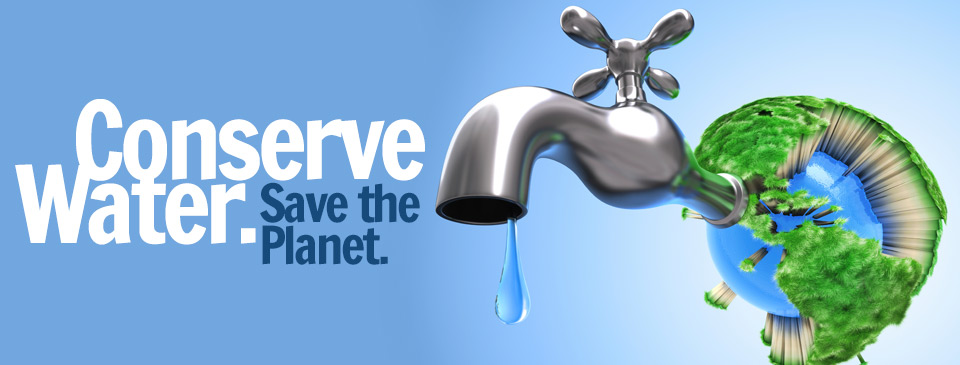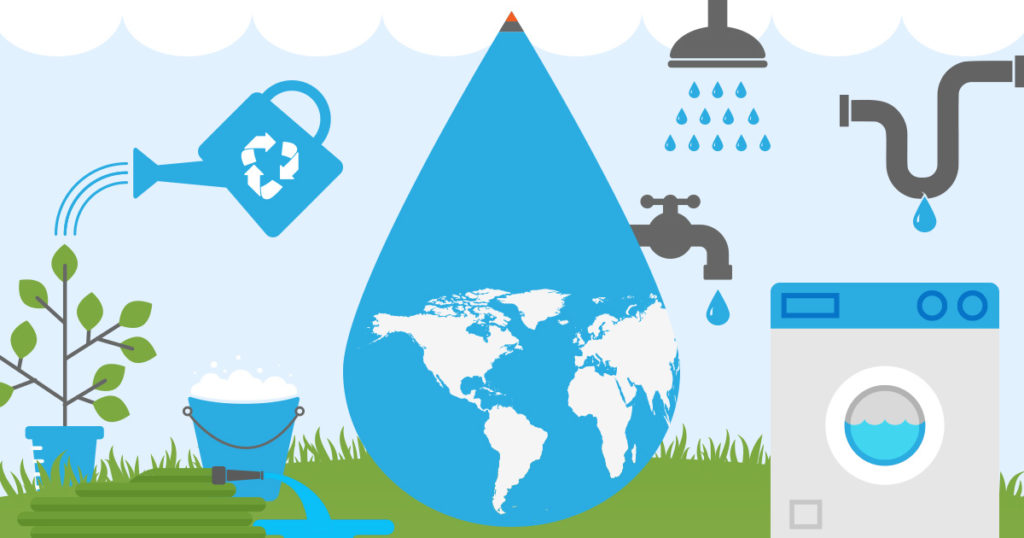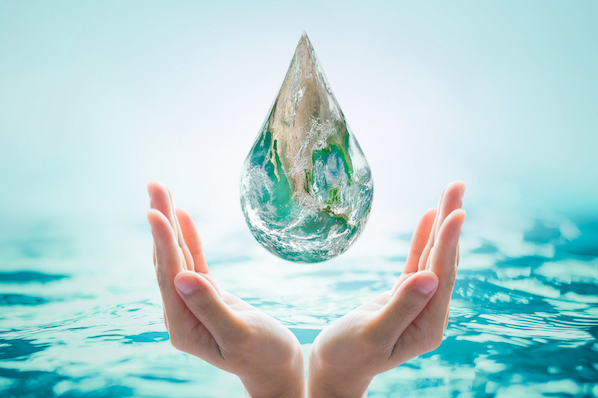Water Conservation
What Can We Do?
We can all play a part in ensuring the continued availability of our water supply. Water conservation should not just be for emergencies, but it should be a way of life. Conserving water saves you money on your water and sewer bills, reduces the cost of building new water and wastewater infrastructure, and leaves more water in rivers and lakes for all of us to enjoy.
A large portion of the water consumed by an average American household is used outdoors: landscape irrigation, car washing, maintaining swimming pools, cleaning sidewalks and driveways, etc. It is here where we can make simple but significant changes that will have a positive effect.
What can we do? There are many steps we can take to conserve water. While some may seem very simple, it all adds up. Take a step toward water conservation today by being conscious when you use water.
It is our choice to pay attention to our daily habits – how we use water and how we might be wasting it. Do your part to conserve our precious supplies by small, thoughtful changes in your daily activities and habits as these small changes can add up to big changes. Every drop counts and each of us, together, can make a difference.

Save Water Outside Your Home
Landscape Irrigation
- Detect and repair all leaks in your irrigation system.
- Use properly treated wastewater for irrigation where available.
- Water the lawn or garden during the coolest part of the day (early morning is best). Do not water on windy days.
- Water trees and shrubs, which have deep root systems, longer and less frequently than shallow-rooted plants that require smaller amounts of water more often.
- Set sprinklers to water the lawn or garden only – not the street or sidewalk.
- Use soaker hoses or trickle irrigation systems for trees and shrubs.
- Install moisture sensors on sprinkler systems.
- Use mulch around shrubs and garden plants to reduce evaporation from the soil surface and cut down on weed growth.
- Raise your lawn mower cutting height – longer grass blades help shade each other, reduce evaporation, and inhibit weed growth.
- Minimize or eliminate fertilizing, which promotes new growth needing additional watering.
Other Outdoor Uses
- Sweep driveways, sidewalks and steps rather than hosing off.
- Wash the car with water from a bucket, or consider using a commercial car wash that recycles water.
- When using a hose, control the flow with an automatic shut-off nozzle.
- Consider purchasing a new water-saving swimming pool filter.
- Use a pool cover to reduce evaporation when pool is not being used.
- Do not install or use ornamental water features unless they recycle the water. Do not operate during a drought.

Save Water Inside Your Home
Bathroom
- Do not let the water run while shaving or brushing your teeth.
- Take short showers instead of baths. Turn off the water while soaping or shampooing.
- If you must use a tub, close the drain before turning on the water and fill the tub only half full.
- Bathe small children together.
- Never use your toilet as a waste basket.
Kitchen and Laundry
- Keep drinking water in the refrigerator instead of letting the faucet run until the water is cool.
- Wash fruits and vegetables in a basin. Use a vegetable brush.
- Do not use water to defrost frozen foods; thaw in the refrigerator overnight.
- Add food wastes to your compost pile instead of using the garbage disposal.
- Wash only full loads of laundry or use the appropriate water level or load size selection on the washing machine.
Equipment
- Consider purchasing high-efficiency toilets.
- Install low-flow faucet aerators and showerheads.
- Consider purchasing a high efficiency washing machine which can save over 50% in laundry water and energy use.
- Repair all leaks. A leaky toilet can waste 200 gallons per day. To detect leaks in the toilet, add food coloring to the tank water. If the colored water appears in the bowl, the toilet is leaking.
Garden Watering Calculator
Most residential water use is for outdoor landscaping. Take a close look at your outdoor watering activities. Most landscapes don’t need to be watered as often in the fall and winter as they do during the summer. If you’re not sure how much water your landscaping needs, a helpful interactive online tool is available online from BeWaterWise.com.
Simply answer a few questions about your location, landscape, type of soil, and sprinkler system. The online calculator will show you how many times a week you will need to water your landscape, and for how long. Just a few minutes of your time could add up to significant savings on your water bill, and help to preserve our most precious natural resource – water.
Sources Used & For More Information

